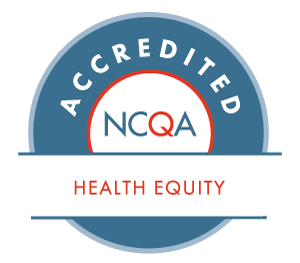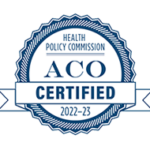By: Kim Prendergast, an interview with Grace Akor and Tatiana Torres

Since 2020, C3 has been implementing the Flexible Services Program, a nutrition and housing program made available by MassHealth (Medicaid) through a Section 1115 demonstration waiver. This program allows C3 to pilot evidence-based approaches that address a member’s social needs around food insecurity, housing instability, and homelessness. We work in partnership with community-based Social Service Organizations (SSOs) across Massachusetts to enroll our eligible members in programs that provide them access to nutritious food and help them find or keep affordable and healthy housing.
At C3, our approach has been to work with our Federally Qualified Health Centers (FQHCs) to screen their patients engaged in clinical care for food insecurity and housing instability or homelessness. Patients who are C3 members and who qualify are then connected to the Flexible Services Program with an SSO partner in their community.
With four years of experience, our C3 Social Health department has lessons to share with other Accountable Care Organizations, Managed Care Organizations (MCOs), and Community Based-Organizations about how to make these partnerships run well.
I sat down with two of our team members to get their perspective on what makes this program – and these partnerships – a success.
Grace Akor is C3’s Flexible Services Program Manager, and Tatiana (Tati) Torres is the Sr. Program Coordinator. Grace primarily works with the Nutrition Programs, and Tati works with the Housing partners. Read on for their insights about these following lessons and more!
- Building trusting relationships between Community Health Workers (CHWs) and members makes for more effective referrals;
- Communication is key to strong partnerships;
- The flexibility provided by this aptly named program allows us to customize solutions to meet the needs of members and their families; and
- Celebrating our “Mission Moments” is an important part of the work.
Question: At its core, this program is about engaging and supporting our members to address their health-related social needs. Tell me how our members experience this program – how do they get enrolled in Flexible Services and connected to services?
Grace: Members are referred by our health centers – we have a few workflows to support members engaged in our clinical programs, such as Care Management, the Behavioral Health Transitions of Care, and the High-Risk Maternity Programs. When a member screens positive for a food or housing need, a Community Health Worker (CHW) makes the referral through our customized system. When the SSOs are providing services, they are closing the loop on those referrals. For instance, they’ll let our team know if there is a member they can’t reach. That way, we know with surety when we’re sending a referral to our partners that our members are getting connected to services.
Another component of engaging our members is how we introduce the program to them. I think the way Flexible Services is shared with and explained to our members is exciting for them. Our members get to experience prompt and effective support; it’s not a long wait list like other programs. Similarly, our CHWs have a way of making our members know and trust that when they put in a referral to Flexible Services, the members will get help.
Tati: I agree. I think it’s exciting when members hear that our program will be able to help with their needs and what they are going through. Because they have a relationship with the CHWs, it gives them hope that something good is going to come from participating in this program.
Question: We talk about our Social Service Organizations as our “partners” rather than as vendors since they do more than provide goods to our members. How do you support that partnership model?
Tati: We have good relationships and good communication with our partners. We meet monthly to assure that we are supporting those relationships. This regularity helps us ensure our members are getting the services they need. We have a data analytics tool that lets us share information about their success with members and referral numbers, as well as track the budget.
Because we communicate well with our partners, we can problem-solve quickly and collaboratively. It’s important this line of communication is open and nurtured because we may see opportunities our partners do not, or vice versa, because of where each of us sits operationally. We can share data and brainstorm how to make it work for our members in ways that also are supportive of our SSO partners.
Question: Isn’t this a lot of work for our health center staff to make referrals to Flex?
Grace: Yes, I believe it takes a lot of work and dedication to make referrals, and we appreciate all the efforts they put into this work. However, we have streamlined the workflow and created useful materials to make the process of referral easy. We have step-by-step PowerPoint slides that outline every step they need to take. We offer Office Hours to troubleshoot questions. We have created short video clips to help navigate the system easily as well. We make sure the process is simple, so they can support their members easily.
We offer other trainings for our health center staff because we know that it takes a lot of work and a lot of patience to support members. It’s crucial that we empower CHWs as they are on the frontlines, identifying, advocating, and supporting members and the community. We offer other types of SDOH (Social Drivers of Health) training for our health center staff. For example, we offer trainings on SNAP (Supplemental Nutrition Assistance Program) & WIC (Women, Infants, and Children) (Women, Infants, and Children) (Women, Infants, and Children), Trauma-Informed Care, Housing resources, and transportation resources that CHWs can access for their patients. We have held sessions on social isolation & loneliness, as well.
In addition, we are cheerleading them on! We love to showcase our CHWs’ efforts in meetings and newsletters. We let them know that we see and appreciate all the amazing work they do to support members. To date, we have referred about 15,000 members to our Flexible Services program. This is testament to our CHWs driving the program’s success.
Finally, it’s a JOY that the CHWs trust us and see us as part of the care coordination process. Key to this relationship is open communication and mutual understanding & trust. CHWs reach out to us by email or phone, and Tati offers weekly office hours, so we connect with them regularly. We provide them with the support they need. With other programs, health center staff don’t have the ability to connect, so it’s another benefit of Flexible Services; they can reach out to us directly – our C3 team is the backbone to support them with their members’ social needs.
Question: Tati, housing instability is such a unique and personal challenge. How does the team-based approach help us to address this critical issue?
Tati: Bringing a team together instead of having one case manager trying to brainstorm solutions to each unique housing situation helps tremendously. Housing situations are all different, so our team approach brings staff with different experiences and perspectives on what type of housing might be appropriate or how to manage the barriers a member might be experiencing. You can go about housing support in different ways; some case managers might not have explored a certain path, so it is beneficial to engage the team to work together to explore a range of strategies.
We also work with MLPB (Medical Legal Partnership | Boston); their participation in our case rounds brings an outside look at how to best support a member. That might include insights about other public benefits to boost the member’s income or ways to work with the landlord to prevent an eviction. These case consultations provide our Housing case managers access to the necessary legal guidance to assist members facing particularly complex circumstances. This partnership brings in new ways to help members get out of – or through –difficult housing situation that they might not have thought they could get out of.
Question: While we primarily support our individual members with nutrition support, we know that families eat together – and experience food insecurity as a household. How is our Flexible Services program addressing household needs?
Grace: We know that food insecurity isn’t isolated to a single member of the household; families who eat together experience food insecurity together. To address food insecurity for households, we developed a special workflow for our pediatric members. We piloted it with one of our health centers, where we provided home-delivered meals to members at the household level. We’re learning about that to guide our program development.
I’m also excited that we’re developing a new maternity health nutrition program. These members will have the option to receive services at the household level too.
What is special about our nutrition program is its comprehensive approach to food security. Our programs offer kitchen items as well as nutrition education and cooking classes. A member who receives a pot and pan or an air fryer means the whole family could benefit from healthy, home-cooked meals. For the cooking classes, we not only offer adult classes, but also kids ones. Our members also have access to more tailored nutrition education – 1:1 coaching with a dietitian. And the strategies and knowledge grasped from these sessions lead to healthy choices for the whole family.
Outside of Flexible Services, we’re supporting our CHWs to ensure that eligible members are enrolled in SNAP and WIC. Those benefits support the whole household, as well. We’re really making an effort to serve our members at the household level, and I would say we’re doing a great job at that!
Question: What’s the best part of your role with Flexible Services?
Tati: I would say the best part is building relationships with so many wonderful people who are on the front lines, working with members, and being able to help them support our members. We follow the members from the beginning to the end; their journey with us doesn’t stop with the referral. Seeing how our health center CHWs and the SSO staff act and advocate in concert is great. It’s rewarding to know that I’m part of a team that makes a difference in people’s lives.
Grace: My favorite part of my role is conducting training sessions with our health center staff. I love meeting new faces, connecting with them, and sharing about Flexible Services – it gives them another tool in their toolkit to support our members’ social health needs. I also love the monthly SSO meetings because they allow me to take a step back from my day-to-day role in operations. It’s a joy to hear our partners talk about how they are helping our members.
Question: Tell me about the “Mission Moment” – and can you both share one?
Tati: Mission moments are small or big success stories that we share in our team meetings. It might be a member case such as a member who was connected to services and had a really good outcome) or an accomplishment we had with a training for one of our SSO partners. We like to lift up these successes to boost morale and honor how many of these situations started out as challenges but were resolved by our program and with teamwork.
I’ll share two recent stories: In the housing world, it’s hard to find units. For members who are in the eviction process, it can be a scary time, especially if they are going through the housing court system. Recently one of our SSO partners was able to guide a member through that process and save the unit. They helped them with a RAFT (Residential Assistance for Families in Transition) (Residential Assistance for Families in Transition) application to pay rental arrears, negotiate with their landlord, and stay in their unit! They were able to get a clean slate and start paying monthly for their rent.
We had another member who was experiencing homelessness – jumping from friends or families’ houses to the street, living in their car, and sometimes staying in a shelter. That member was awarded a public housing unit where they pay 30% of their income. We were able to set them up with furniture so that their unit became a real home. I’m super proud of everybody who was involved in both of those cases.
Grace: It’s great to hear mission moments. It’s encouraging to know that what we’re doing is impacting someone’s life. Since we don’t work directly with our members, when we get to hear those stories, it reminds us that we’re really doing something great.
I’ll share a mission moment: a quote from one of our members who received the produce boxes from our partner, Sustainable Cape.
One member said: “I’ve been getting really creative with all the fun ingredients you bring, forcing me to cook out of my comfort zone and eat more diversely. I’ve been able to show my little boys all the bright and fresh produce and talk to them about the different farms they came from.”
When I saw this quote, I was excited. Sustainable Cape does a great job sharing information about the farms where their produce comes from. It’s amazing that this mom educates her children on the value of local produce and knows where their food comes from. Even when the mom completes her program with Flexible Services, she’ll know that this farm exists in her community, and she can continue to access fruits and vegetables from that farm. That is the lasting impact Flexible Services has on members and their communities!





